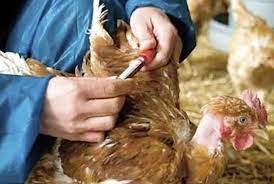
Brazil, the world's largest poultry exporter, has verified cases of Highly Pathogenic Avian Influenza (HPAI) in wild birds. Although these cases mark the first-ever occurrence in the country, the Brazilian government emphasizes that the situation will not lead to a ban on the importation of Brazilian poultry products, in accordance with guidelines from the World Organization for Animal Health (WOAH). While the avian influenza virus poses a threat to bird populations and the farming sector, the impact on Brazil’s poultry industry remains limited.
| Article and Schedule Quiz | Start Test! |
Detection of H5N1 Subtype in Wild Marine Birds:
The Brazilian government has officially acknowledged the detection of two instances of H5N1 Highly Pathogenic Avian Influenza. These cases were detected in wild birds belonging to the Thalasseus acuflavidus species, located on the coast of Espirito Santo, a southeastern state in Brazil. Notably, Espirito Santo is Brazil’s third-largest egg-producing state, with a focus on domestic market sales rather than exports. While surveillance services are being strengthened in the surrounding area, it is crucial to highlight that these cases were found exclusively in wild animals, thereby maintaining Brazil’s status as a country free of HPAI.
Brazil’s Preparedness and International Response:
The CEO of BRF, the world's largest chicken exporting enterprise based in Brazil, Miguel Gularte, voiced his amazement at the avian flu infections. He emphasised that the organisation is still prepared for any circumstance, in accordance with WOAH standards. Gularte also highlighted the robustness of Brazil’s animal health services, which play a vital role in preventing and containing potential threats to industrial poultry farms. Importantly, no member countries within WOAH are expected to impose import bans due to cases detected solely in wild animals.
Impact on Brazilian Poultry Exports:
China, Japan, South Africa, and Saudi Arabia are among the main importers of Brazil’s chicken products. Despite recent avian flu cases, Brazil’s poultry exports are not expected to be significantly affected, as the guidelines set by WOAH safeguard against imposing import bans for situations involving wild animals. This distinction provides assurance to importers, reinforcing Brazil’s commitment to maintaining high standards in its poultry industry.
About Avian Influenza:
Avian Influenza (also known as bird flu) is a highly contagious viral disease that primarily affects birds, but some strains can also infect humans. Here are key points about Avian Influenza:
1. Types of Avian Influenza: There are two forms of avian influenza viruses: low pathogenic avian influenza (LPAI) and highly pathogenic avian influenza (HPAI). HPAI strains are more severe and produce higher bird mortality rates.
2. Avian Influenza Subtypes: Avian Influenza viruses are further categorized based on different hemagglutinin (H) and neuraminidase (N) proteins. Common subtypes include H5N1, H7N9, H9N2, among others. These subtypes can vary in their pathogenicity and ability to infect humans.
3. Transmission: Direct contact with diseased birds, their droppings, nasal secretions, or contaminated surfaces is the most common way that Avian Influenza viruses spread among birds. The viruses can also be carried by migratory birds, which can spread the disease over long distances.
4. Impact on Birds: Avian Influenza can cause mild to severe illness in birds, ranging from reduced egg production and respiratory issues to high mortality rates in HPAI outbreaks. Infected birds may show symptoms such as sudden death, respiratory distress, diarrhea, and swelling of the head, comb, and wattles.
5. Human Infections: While the primary hosts of Avian Influenza are birds, certain strains have the potential to infect humans. Human infections are rare but can occur through direct contact with infected birds or their secretions, or through exposure to contaminated environments. Close and prolonged contact with infected birds is usually required for transmission to humans.
Brazil Key Points:
President: The President of Brazil is Luiz Inácio Lula da Silva, also known as Lula da Silva.
Capital: The capital city of Brazil is Brasília.
Currency: The currency of Brazil is the Brazilian Real (BRL).
Official Language: The official language of Brazil is Portuguese.
Population: Brazil has a population of over 211 million people, making it the sixth most populous country in the world.
Geography: Brazil is located in South America and covers a vast area of approximately 8.5 million square kilometers, making it the fifth largest country globally in terms of land area.
| Missiles Mock Test | Start Test! |
| SSC MTS Mock Test | Start Test |
| IBPS CLERK MOCK TEST | Start Test |
| SSC MTS 2022 JULY 26 Shift 1 (ENGLISH) | Start Test! |
| SSC GD Previous Year Paper 2021 Nov 17 Shift - I (Hindi) | Start Test! |
| SSC CGL Tier - 1 PYP 2022 April 21 Shift- 1 (ENGLISH) | Start Test! |
| MPSC PAPER I MOCK TEST 1 (ENGLISH) | Start Test! |
| IB Security Assistant Mock test 1 (english) | Start Test! |
| UP POLICE CONSTABLE MOCK TEST 1 | Start Test! |
| DELHI POLICE CONSTABLE MOCK TEST 1 (HINDI) | Start Test! |